Discover Euronews Tech Talks
Euronews Tech Talks

Euronews Tech Talks
Author: Euronews
Subscribed: 233,746Played: 1,052,134Subscribe
Share
© Euronews
Description
Euronews Tech Talks goes beyond discussions to explore the impact of new technologies on our lives. With explanations, engaging Q&As, and lively conversations, the podcast provides valuable insights into the intersection of technology and society.
Join us every other Wednesday, starting from June 14th.
We delve into the pressing questions that shape Europe's digital future, covering topics ranging from Generative AI and space exploration to blockchain and net neutrality.
Hosted on Acast. See acast.com/privacy for more information.
71 Episodes
Reverse
As space becomes increasingly militarised, what role do satellites play, and where does the EU position itself? Euronews Tech Talks talks to researcher Luciano Anselmo, Geosat CEO Francisco Vilhena da Cunha, and EUSPA executive director Rodrigo da Costa to answer these and more questions.Do you want to reach out to Euronews Tech Talks? Email alice.carnevali@euronews.com.Euronews Tech Talks goes beyond discussions to explore the impact of new technologies on our lives. With explanations, engaging Q&As, and lively conversations, the podcast provides valuable insights into the intersection of technology and society. Hosted on Acast. See acast.com/privacy for more information.
Little is still known about the relationship between humans, therapy, and AI chatbots, yet these tools are being used by some people seeking quick psychological support. What are the risks, and are there any benefits? Euronews Tech Talks spoke with Charlotte Blease, a philosopher and healthcare researcher, and Tom Van Daele, clinical psychologist and research coordinator in psychology and technology at Thomas More University of Applied Sciences in Mechelen, Belgium. Do you want to reach out to Euronews Tech Talks? Email alice.carnevali@euronews.com.Therapy - AI Euronews Tech Talks goes beyond discussions to explore the impact of new technologies on our lives. With explanations, engaging Q&As, and lively conversations, the podcast provides valuable insights into the intersection of technology and society. Hosted on Acast. See acast.com/privacy for more information.
If you have been tempted to transform one of your photos into a Studio Ghibli–style illustration with ChatGPT, you should sit down and listen to this podcast.In this second special episode of Euronews Tech Talks on artificial intelligence (AI), we sit down with artist Sofia Crespo, comic book artist Francesco Archidiacono, and Eleonora Lima, lecturer and researcher in digital humanities at King’s College London, to investigate the relationship between AI and art.Do you want to reach out to Euronews Tech Talks? Email alice.carnevali@euronews.com.Euronews Tech Talks goes beyond discussions to explore the impact of new technologies on our lives. With explanations, engaging Q&As, and lively conversations, the podcast provides valuable insights into the intersection of technology and society. Hosted on Acast. See acast.com/privacy for more information.
Artificial intelligence might seem invisible, yet it has a significant environmental impact — one that is difficult to quantify due to companies' lack of transparency with their data. So, to what extent should we be worried? Is there a way to reduce the environmental cost of AI? To answer this question and unpack the relationship between AI and the environment, Euronews Tech Talks sits down with Jonathan Niesel, leader of the information technology department at Greenpeace Germany and Maja Kirkeby, researcher in the energy consumption of software at Roskilde University in Denmark. Do you want to reach out to Euronews Tech Talks? Email alice.carnevali@euronews.com. Euronews Tech Talks goes beyond discussions to explore the impact of new technologies on our lives. With explanations, engaging Q&As, and lively conversations, the podcast provides valuable insights into the intersection of technology and society. Hosted on Acast. See acast.com/privacy for more information.
Euronews Tech Talks sits down with Karen Dolva, co-founder and former CEO of the Norwegian tech company No Isolation, whose robots help children with medical conditions and social difficulties attend school. Do you want to reach out to Euronews Tech Talks? Email alice.carnevali@euronews.comEuronews Tech Talks goes beyond discussions to explore the impact of new technologies on our lives. With explanations, engaging Q&As, and lively conversations, the podcast provides valuable insights into the intersection of technology and society. Hosted on Acast. See acast.com/privacy for more information.
Robotics is making its way into agriculture, helping address challenges such as chemical use and labour shortages. What are the potentials? What are the challenges?In this episode, we travel to Oslo to meet Lars Grimstad, CTO and co-founder of the agri-tech company Saga Robotics. We also hear from professors Stefano Stramigioli and Ioannis Athanasiadis, as well as engineers Giorgio Boscheri and Cesare Lobascio, about how robots are transforming agriculture, both on Earth and in space.Do you want to reach out to Euronews Tech Talks? Email alice.carnevali@euronews.com.Video: https://www.youtube.com/watch?v=JfBD7ohBdCoEuronews Tech Talks goes beyond discussions to explore the impact of new technologies on our lives. With explanations, engaging Q&As, and lively conversations, the podcast provides valuable insights into the intersection of technology and society. Hosted on Acast. See acast.com/privacy for more information.
How is AI transforming robotics? Will robots ever replace doctors or come into our homes? In this episode of Euronews Tech Talks, we put these and more of your questions to Kai Olav Ellefsen, associate professor at the University of Oslo. Do you want to reach out to Euronews Tech Talks? Email alice.carnevali@euronews.com.Video: https://www.euronews.com/video/2025/11/27/qa-how-will-robotics-shape-our-future-euronews-tech-talks Euronews Tech Talks goes beyond discussions to explore the impact of new technologies on our lives. With explanations, engaging Q&As, and lively conversations, the podcast provides valuable insights into the intersection of technology and society. Hosted on Acast. See acast.com/privacy for more information.
We hear more and more about space mining projects—companies are interested in mining asteroids, and the European Commission is exploring the idea of mining the Moon for critical raw materials. But what would be mined? How? And would it be ethical and legal?In this episode, Euronews Tech Talks sits down with several experts to discuss these questions: Ian Crawford, a professor of planetary science at the University of London; Jill Stuart, an academic at the London School of Economics; Pierfrancesco Biasetti, a researcher at the Summer School in Space Ethics at the University of Padua; Erik Persson, a philosophy professor at Lund University; and Kathryn Halder, director of the European Space Resources Innovation Centre (ESRIC).Do you want to reach out to Euronews Tech Talks? Email alice.carnevali@euronews.com. Euronews Tech Talks goes beyond discussions to explore the impact of new technologies on our lives. With explanations, engaging Q&As, and lively conversations, the podcast provides valuable insights into the intersection of technology and society. Hosted on Acast. See acast.com/privacy for more information.
Although engineers began developing space-based solar energy technology in the 1960s, it still hasn’t become a reality. Why?In this episode, Euronews Tech Talks tries to answer this question by speaking with Sanjay Vijendran, co-founder and CTO of TerraSpark; Francesco Contino, professor at the school of engineering at UC Louvain; and Wei He, senior lecturer in engineering at King’s College London.Important: The European Space Agency (ESA) provided Euronews Next with the Solaris documents after the publication of the episode. More details can be found in the episode’s article.Do you want to reach out to Euronews Tech Talks? Email alice.carnevali@euronews.comEuronews Tech Talks goes beyond discussions to explore the impact of new technologies on our lives. With explanations, engaging Q&As, and lively conversations, the podcast provides valuable insights into the intersection of technology and society. Hosted on Acast. See acast.com/privacy for more information.
NASA’s decision to speed up plans for building a nuclear reactor on the Moon has raised questions about the United States’ broader space strategy and renewed curiosity about the use of nuclear energy beyond Earth. In this episode of Euronews Tech Talks, we address these questions with professor Simon Middleburgh, co-director of the Nuclear Futures Institute at the University of Bangor (UK), Alfredo Carpineti, astrophysicist and senior science writer at IFL Science, and Francesco Lodi, researcher at ENEA (Italy).Do you want to reach out to Euronews Tech Talks? Email alice.carnevali@euronews.comEuronews Tech Talks goes beyond discussions to explore the impact of new technologies on our lives. With explanations, engaging Q&As, and lively conversations, the podcast provides valuable insights into the intersection of technology and society. Hosted on Acast. See acast.com/privacy for more information.
In this final chapter of our journey into the world of PFAS, we speak with Fajer Mushtaq, whose company Oxyle is working to contain and destroy PFAS in wastewater, and with Miika Nikinmaa and Diana Lau, who are developing alternatives for food packaging and textiles through the ZeroF project.Do you want to reach out to Euronews Tech Talks? Email alice.carnevali@euronews.comEuronews Tech Talks goes beyond discussions to explore the impact of new technologies on our lives. With explanations, engaging Q&As, and lively conversations, the podcast provides valuable insights into the intersection of technology and society. Hosted on Acast. See acast.com/privacy for more information.
What is it like to live in one of Europe’s hotspots for PFAS contamination? Jeroen Van Reeth, a resident of Zwijndrecht—the Belgian town affected by PFAS produced by the chemical company 3M—opens his home to Euronews Tech Talks to share his experience.We, then, speak with experts Jacob de Boer, Hans Peter Arp and Madeleine Bussemaker to uncover if and how it is possible to contain and destroy “forever chemicals”. Do you want to reach out to Euronews Tech Talks? Email alice.carnevali@euronews.com Euronews Tech Talks goes beyond discussions to explore the impact of new technologies on our lives. With explanations, engaging Q&As, and lively conversations, the podcast provides valuable insights into the intersection of technology and society. Hosted on Acast. See acast.com/privacy for more information.
Per- and polyfluoroalkyl substances (PFAS) are man-made chemicals widely used in the industry, but potentially harmful to human health. They can be found on pizza boxes, ski clothing, and sanitary pads, but some studies associate them with multiple kinds of health problems. In this Q&A episode, we explore PFAS by putting your questions to chemist Martin Scheringer, research scientist at the Swiss Federal Institute of Technology (ETH Zurich).The Map of Forever Pollution: https://foreverpollution.eu/map/ Do you want to reach out to Euronews Tech Talks? Email alice.carnevali@euronews.com Euronews Tech Talks goes beyond discussions to explore the impact of new technologies on our lives. With explanations, engaging Q&As, and lively conversations, the podcast provides valuable insights into the intersection of technology and society. Hosted on Acast. See acast.com/privacy for more information.
For this season finale of Euronews Tech Talks, former professional cyclist Bo Hamburger reflects on his use of EPO in the 1990s and early 2000s, offering insights into how doping works, why athletes turn to it, and its potential health effects. We’re also joined by April Henning, Associate Professor of International Sport Management at the Edinburgh Business School, Heriot-Watt University, and Dominic Sagoe, Professor of Psychology at the University of Bergen in Norway and founder of the Human Enhancement and Body Image Lab.Euronews Tech Talks will return in September — enjoy your summer!Credits for the intro race audio in San Sebastián:Funnycycling: 1997 World Cycling Championships – Campeonato Mundial de Ciclismo – San Sebastián – Brochard Courtesy (2015)Euronews Tech Talks goes beyond discussions to explore the impact of new technologies on our lives. With explanations, engaging Q&As, and lively conversations, the podcast provides valuable insights into the intersection of technology and society. Hosted on Acast. See acast.com/privacy for more information.
Researchers are developing AI programmes to make doping detection more effective, faster, and cheaper. How do these systems work? What challenges do their creators face?Euronews Tech Talks sits down with Wolfgang Maass, Professor of Business Informatics and Computer Science at Saarland University and Francesco Botrè, Director of the WADA-accredited anti-doping laboratory in Rome, to answer these questions.Credits: Oscars, "Icarus" wins Best Documentary Feature, YouTube.Euronews Tech Talks goes beyond discussions to explore the impact of new technologies on our lives. With explanations, engaging Q&As, and lively conversations, the podcast provides valuable insights into the intersection of technology and society. Hosted on Acast. See acast.com/privacy for more information.
What is doping? How do these prohibited substances work? In this Q&A episode, Euronews Tech Talks explores this topic with Andrea Petróczi, Professor of Public Health at Kingston University.Credit for Lance Armstrong interview: Oprah Winfrey Network (OWN). “Oprah and Lance Armstrong: The Worldwide Exclusive”. Aired January 17–18, 2013.Euronews Tech Talks goes beyond discussions to explore the impact of new technologies on our lives. With explanations, engaging Q&As, and lively conversations, the podcast provides valuable insights into the intersection of technology and society. Hosted on Acast. See acast.com/privacy for more information.
Plastic and chemical pollution in marine environments pose a major threat to the health of our oceans. Euronews Tech Talks interviews two experts to understand the scale of the problem and explore the technological solutions that could help address it. Simon Bernard, CEO of Plastic Odyssey, is on a world tour to collect solutions to plastic pollution; Anneliese Hodge is a researcher working on the impact sunscreen has on the marine environment.The next episode of Euronews Tech Talks will delve into the world of doping. If you have a scientific question about it, please reach out to alice.carnevali@euronews.com. Euronews Tech Talks goes beyond discussions to explore the impact of new technologies on our lives. With explanations, engaging Q&As, and lively conversations, the podcast provides valuable insights into the intersection of technology and society. Hosted on Acast. See acast.com/privacy for more information.
What happens on a satellite’s launch day? What are the thoughts and emotions of those behind the mission?In this second of two special episodes on the European Space Agency’s Biomass satellite, Euronews Tech Talks takes you to Kourou for a behind-the-scenes look at the launch to answer these questions.Podcast cover credits: ESA-CNES-ARIANESPACE/Optique vidéo du CSG–S. MartinEuronews Tech Talks goes beyond discussions to explore the impact of new technologies on our lives. With explanations, engaging Q&As, and lively conversations, the podcast provides valuable insights into the intersection of technology and society. Hosted on Acast. See acast.com/privacy for more information.
The European Space Agency (ESA)’s Biomass satellite is designed to measure the amount of carbon stored in tropical forests. It was launched from Europe’s spaceport in Kourou, on 29 April 2025.In the first of two special episodes dedicated to the mission, Euronews Tech Talks takes you to French Guiana on the eve of the launch to explore what the satellite is designed to do and how people were feeling in the final hours before liftoff.Credits podcast cover: ESA - M. Pédoussaut/ZetapressEuronews Tech Talks goes beyond discussions to explore the impact of new technologies on our lives. With explanations, engaging Q&As, and lively conversations, the podcast provides valuable insights into the intersection of technology and society. Hosted on Acast. See acast.com/privacy for more information.
The deregulation of a new generation of genetically modified organisms is stirring debate across the European Union. Euronews Tech Talks dives into the controversy, exploring whether the EU should ease restrictions on cutting-edge genetic technologies, by listening to both sides of the debate. Euronews Tech Talks goes beyond discussions to explore the impact of new technologies on our lives. With explanations, engaging Q&As, and lively conversations, the podcast provides valuable insights into the intersection of technology and society. Hosted on Acast. See acast.com/privacy for more information.



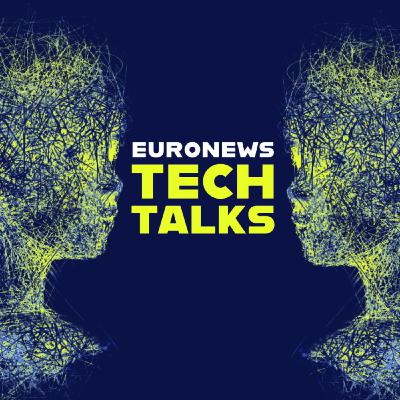
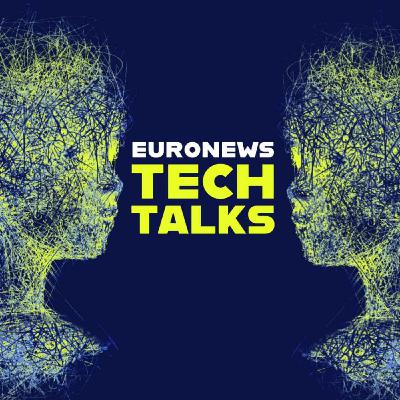
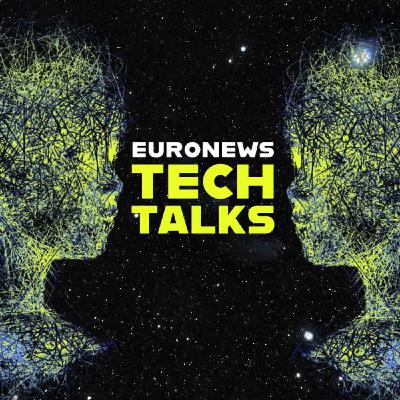
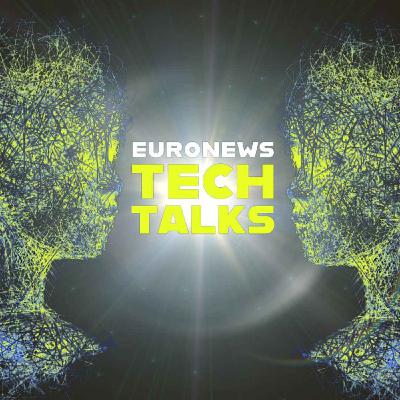
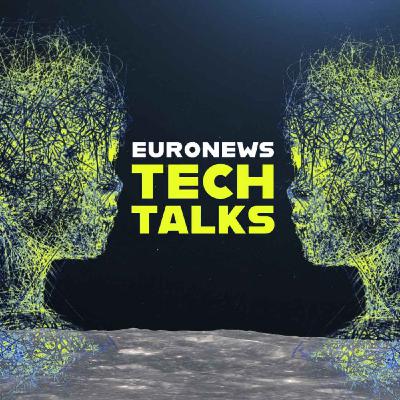

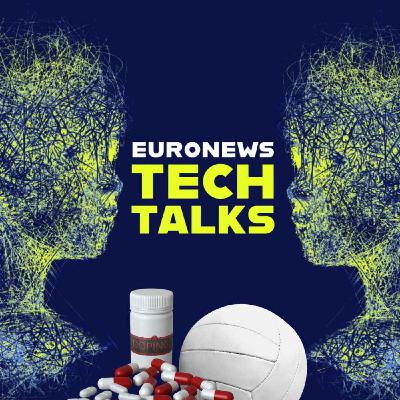
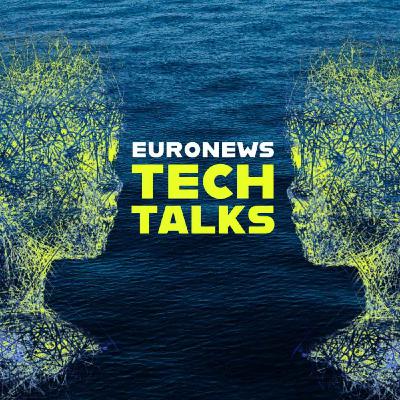

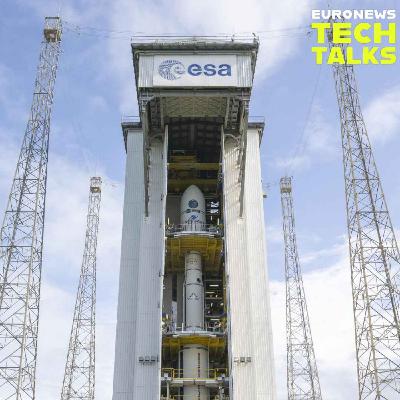
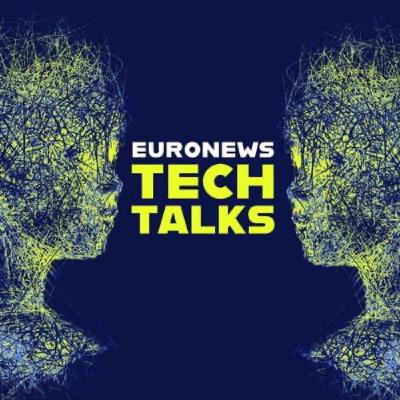



was great and interesting!
۸۲۶۸۶حپا۷ا۷۷۷ا۶۷۶۷عل۶ع۶ع۶هعع۶ع۶ه۷ه۷ه۶ع۶۶ع۶ع۶۷۰ ۶۷۰ ۶۷۰ ۶۷۶۷۰ ۷۰ کتاب خوندن فقط خوندن محتوای فاخر نیست. اصلا گاهی قرار دذ ۶لز یک دیقهای اینستا قرار نیست زود به نتیجه برسه. عادتش میدی کلمات رو دنبال کنه ، داستان رو حدس بزنه ، برای پایان صبر کنه.۷۷. پس اون رمانو باز کن و استارتش بزن ه۶۶ع۶عغ۶ع۶ععه۶ه۶عهع۶۶۵ع۶۶۶هخ۷عه۶ه۶۲هعههحج..هر۷۷ال ج..هرحال هرحال جهح..۷خج۷. ۷ن۷ سلام خانم جخصه۶۶۶یورو یورو حعا۶ ۷ ۶۶ ببuBebo UUE is doing uUUE in uuunow if mu
I would have loved to understand technologies that might allow us to replace Lithium, such as Sodium.
حت۷نلنع۷حلهح۶۰صچح۷۰۷۹۷۰خ۷۷۷۹عح۶ح۹۶هج۶ج۶ه۹حححجچ۷سعجحح۷۷۷ح۶هج۶۰۶ج۹جه۶ج۶۷ح۶ح۶۷ححشش۰هح۷حش۶ححج۸۹۷۰خ۷۷۷۹عح۶ح۹۶هج۶ج۶ه۹حححجچ۷سعجحح۷۷۷ح۶هج۶۰۶ج۹جه۶ج۶۷ح۶ح۶۷ححشش۰هح۷ح۴لخ